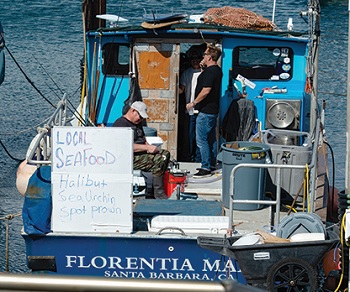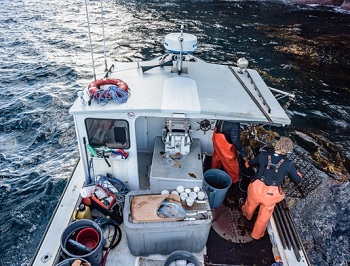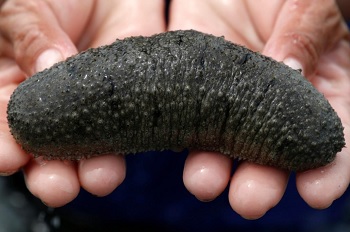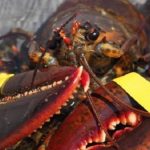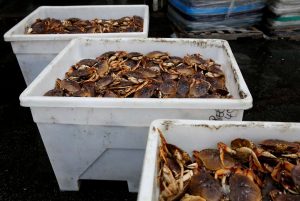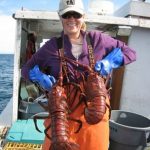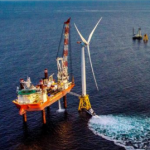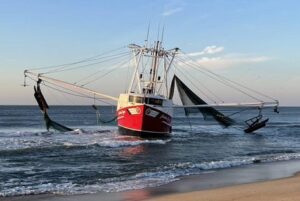Tag Archives: China

Memorandum on Protecting the United States Lobster Industry
Protecting the United States Lobster Industry By the authority vested in me as President by the Constitution and the laws of the United States of America, it is hereby ordered as follows: Section 1. Policy. On May 22, 2018, the United States Trade Representative (Trade Representative) concluded an investigation under section 301 of the Trade Act of 1974, as amended (19 U.S.C. 2411), finding that China had engaged in multiple unreasonable and discriminatory trade practices that had harmed American intellectual property rights, innovation, and technology development. In response to China’s unfair and unreasonable conduct, the United States imposed tariffs on several categories of Chinese products. Rather than reform its practices, China responded to the Trade Representative’s findings with unjust retaliatory tariffs designed strategically to inflict financial harm on America’s farmers, fishermen, and workers in other industries. >click to read< 10:02
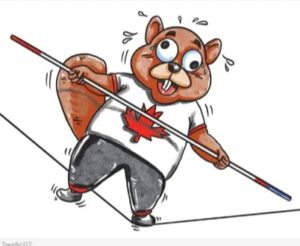
Chinese tabloid blasts Canada over lobster dispute
Communist Party media in China rebuked and threatened Nova Scotia lobster shippers this week for expressing concerns over new roadblocks to getting products into China. The party tabloid Global Times says recent border measures are about food safety after a COVID-19 outbreak was linked to a Beijing food market, “rather than an excuse to target any specific country.” “It’s Canada’s choice to export to China, and Canada needs to abide by Chinese regulations, which may be adjusted when necessary in accordance with the COVID-19 situation,” Bai Ming, a research fellow at the Chinese Academy of International Trade and Economic Co-operation, >click to read< 09:28
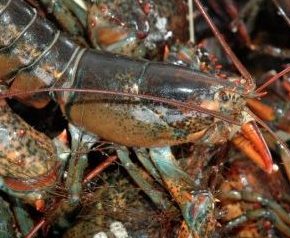
Global Affairs Canada takes no stance on whether lobster exporters should sign Chinese liability form
Chinese customers want Canadian shippers to sign a declaration their lobster is free of COVID-19, and assume liability if it’s detected in China. The stipulation has alarmed shippers like Osborne Burke of Victoria Co-op Fisheries, a Cape Breton company that ships frozen lobster to China. “Absolutely under no condition would we sign anything,” he said. Burke, who is also president of the Nova Scotia Seafood Alliance, does not recommend members sign anything either.,, The province declined comment on the matter Monday. >click to read< 07:52
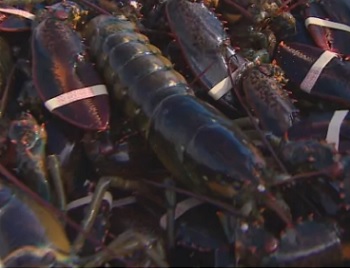
Canadian lobster to China hits another roadblock, demand a signed declaration live lobster is Coronavirus free
Canadian businesses that export lobster to China have run into another border roadblock. On Friday, Chinese importers started demanding a signed declaration that Canadian live and processed lobster is free of COVID-19 before it can enter China. “It’s a bold thing to ask and we as Canadian exporters should push back,” says Stewart Lamont of Tangier Lobster in Nova Scotia. His company flies lobster to mainland China. Lamont has refused to sign the declaration, which makes Canadian companies liable in the Chinese court system if there is a problem. >click to read< 18:52
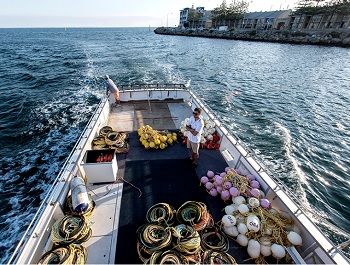
Can we really break the China habit?
China is a hard habit to break.Even after its early mishandling of the coronavirus disrupted the country’s ability to make and buy the world’s products, further exposing the faults of its authoritarian system and leading it to ratchet up its propaganda war, China’s economic power makes it the last best hope for avoiding a protracted global downturn.“When this all started, we were thinking, Where else can we go?” said Fedele Camarda, a third-generation lobster fisherman in western Australia, which sends most of its catch to China. “Then the rest of the world was also compromised by the coronavirus, and China is the one getting back on its feet.”“Although they’re just one market,” he added, “they’re one very big market.” >click to read< 10:56
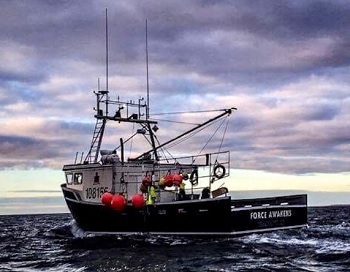
‘Nothing is normal’: LFA 34 & 33 lobster fishery draws to a close in southwest N.S.
The commercial lobster fishery in southwestern Nova Scotia and along the south shore, draws to a close May 31. Crews are bringing gear back ashore at the conclusion of a season that saw a promising start with catches and the price paid to fishermen, but then hit rough waters due to the coronavirus pandemic. “You wouldn’t believe the amount of people that are already hauled up. Some five days early or more,” said Yarmouth County fishing captain Shawn Muise, following a day of fishing on his vessel, Force Awakens, on May 29. “Nothing is normal.” “The season was going so well at the start. Finally the prices were reflecting the market. But when COVID started, and as the price started to drop, you could see it in the fishermen’s faces,” Lots of photos, >click to read< 07:29
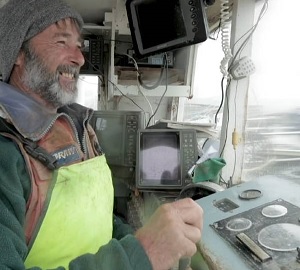
Two Hands blockchain marketing alternative to wet markets for SA southern rock lobster fishers
SA Northern Zone Rock Lobster Fishermen’s Association executive officer Kyri Toumazos said SA fishers would welcome the new system. “To some degree we are behind when it comes to product traceability and have a long way to go,” Mr Toumazas said. “Any time the consumer knows their product come from a sustainable fishery then we have a win.” He said the coronavirus pandemic had caused huge disruption for the industry, but demand had picked up and boats were back fishing off Kangaroo Island now that the northern zone season had been extended out to October 31. Perhaps the Two Hands system could help get more product on limited air freight available, he said. Video, >click to read< 08:46
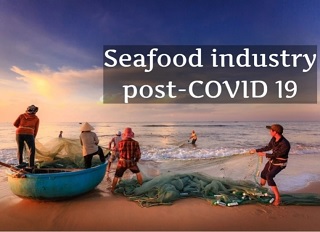
Coronavirus: Seafood industry post COVID-19, an overhaul to trigger growth of small fisheries
The coronavirus outbreak spread through the planet at an unprecedented scale and brought the whole world to a halt, plummeting demand in the majority of the sectors including the seafood industry. Seafood producers across the world are without a market for their product as demand slumps and supply chains cripple due to restrictions imposed to contain the outbreak. The seafood sector is known to have some of the most complex and repressive supply chains but the COVID-19 pandemic has highlighted the need for change that would benefit fishermen as well as consumers. >click to read< 19:01
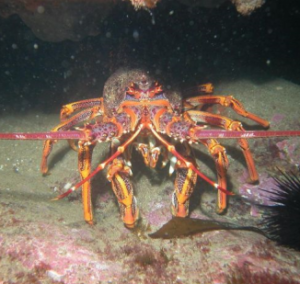
Lobster back on the menu for recovering China
In a welcome sign that life in China returning to normal, tonnes of rock lobster has left Perth for Shanghai in the past few days.The lobster left on return flights after mining billionaire Andrew Forrest and the West Australian government organised the delivery of medical equipment from China.Separate to those flights, it is understood the first air shipment of seafood and other fresh produce under the Morrison government’s $110 million rescue package for exporters will depart on Thursday.The indications China has regained its appetite for high-end Australian produce comes with local consumers set to enjoy an abundance of seafood at rock bottom prices on Good Friday. >click to read< 16:39
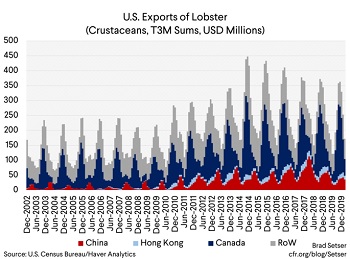
How Effective Have China’s Agricultural and Seafood Tariffs Been?
There is a case that viruses (bird flu, swine fever, and now the coronavirus) have had almost as big an impact on Chinese-American agricultural trade as the trade war. (And more than most want to know on trade in crustaceans) The actual impact of the tariff though isn’t always quite as clear as many think, Take chicken feet (or chicken paws). Guess what really led to a fall in U.S. exports of chicken paws? Bird Flu. There may be a lesson there. Now consider one of the more prominent—at least judging by the press coverage—industries that has been hit by Chinese retaliatory tariffs in the recent trade war: lobster. But there are, in fact, markets other than China for U.S. lobsters, and suppliers other than the United States for China. Given the large two-way trade in lobsters between the United States and Canada,,, >click to read< 16:21

Coronavirus pandemic exposes China’s venality
China makes almost all our medical personal protection equipment. Who knew? It also came to light that much of our most widely used and critically important pharmaceutical drugs are also being made almost exclusively in China.,, Meanwhile the Lunar New Year Holiday was in full swing in China. Millions of people were preparing for the upcoming celebration. In Wuhan, tens of thousands of people were attending massive shopping fairs to purchase gifts. One such event was a potluck dinner held in downtown Wuhan that brought in more than 40,000 families from all over China. These people carried the virus to the world. It was almost seven weeks from the appearance of the coronavirus before the Chinese government was forced to admit its existence. If the government had acted even three weeks earlier, the world would have been spared the horrific pandemic., by Marvin F. Dugger >click to read< 09:56
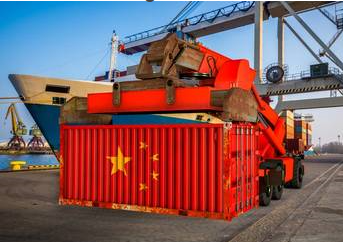
Economic Resumption? Business Picks up Pace in China, Global Recovery Pace Uncertain
China’s business and travel activities are steadily recovering after being disrupted by the coronavirus outbreak, but rapidly rising infections globally will pose a challenge to the country’s broader economic resumption. Nomura estimated in a research report on Monday about 61.6% of the firms hardest hit by the health crisis in China have resumed work as of March 8, and 74.1% in the broader economy. China reported on Monday no locally-transmitted cases of infection on the mainland outside of the central province of Hubei, the epicentre of the outbreak, for the second straight day. >click to read< 19:28

Coronavirus: The day our world changed
Coronavirus has changed everything. We just haven’t noticed it yet. But those changes will become more apparent by the day. Where COVID19 is taking us is uncertain. It appears contained in China. South Korea seems to be on top of its rate of spread. But Italy, the US and Europe may soon be overwhelmed by the contagion. But Flinders University change ecologist Professor Corey Bradshaw says that, ultimately, its impact will not be counted in human fatalities. Nor in the cost of treating the sick. It will be in our minds. It’s in our economic system. >click to read< 07:45
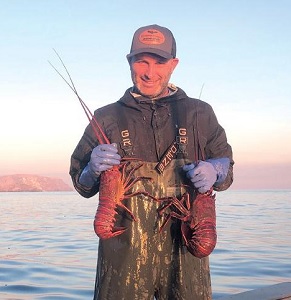
Coronavirus: International turmoil keeps the lobster at home
Commercial fishing is a notoriously condition-dependent occupation. As of early February, however, in addition to the changeable sea and the here-today, gone-tomorrow nature of the work—as well as ongoing tariffs—local lobster fishermen like Brian Aresco of Carpinteria also had to contend with a ban on seafood imports due to the COVID-19 outbreak in their best market, China. Aresco said the price for lobster went from $16 a pound to $8 overnight. After expenses, he would be left with about $100 for 16-hours of work. more>click to read< 18:18
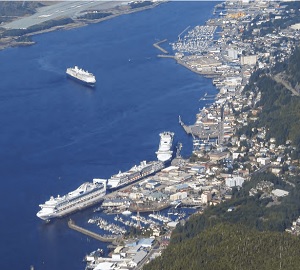
Coronavirus: Perfect storm?
What no one could foresee when the sun rose in Utqiagvik (formerly Barrow) on Jan. 23 and everything seemed so normal was that the planet was already hurtling toward a global economic slowdown with possibly devastating repercussions for a fragile, Alaska economy dependent on oil, tourism, fisheries and the state Permanent Fund – all now suffering the fallout from the consequences of an invisible, contagious and too-often-deadly pathogen. A month before that sunrise, with Utqiagvik still cloaked in darkness, a new coronavirus spawned no one knows exactly where was already spreading in Wuhan, China far to the south and west. more, >click to read< 15:09
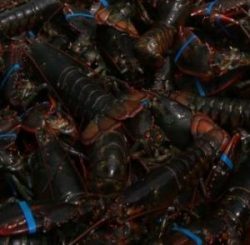
Coronavirus: Despite no shipments to China, Nova Scotia seafood business is thriving
“Our first thoughts are with the people in Asia and China and the rest of the world, Iran, Italy and other countries that are affected by the virus,” says Leo Muise, Executive Director of the Nova Scotia Seafood Alliance. Shipments to Asia have slowed almost to a halt since mid-January when the virus began to spread. “Geo-political events that happen all over this world have a great effect on this industry. Three years ago when the U.S. government and the Chinese government got into that trade war, and China put retaliatory tariffs on the U.S., that’s when our sales to China started to boom because we have a financial advantage there,” >click to read< 10:53
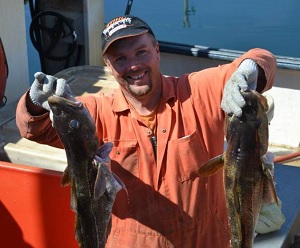
‘On pins and needles’ – NL fish harvesters, processors keeping an eye on China as coronavirus crisis continues
COVID-19, also commonly referred to as the coronavirus, is having a significant economic impact on China, a country whose importance continues to grow as a destination for seafood from this province. “Everybody’s on pins and needles,” Garnish-based harvester Alfred Fitzpatrick told SaltWire Network recently. The crab season along the province’s south coast usually opens up in early April, followed a couple weeks later by lobster. That’s not far off, and with talk in recent days of COVID-19 potentially becoming a pandemic, it looks as if the economic consequences will continue, as well. “Oh, my God, yes,” Fitzpatrick responded when asked if the COVID-19 crisis was inspiring conversation on the province’s wharves. “Like I said, everybody is worried. With the cost of everything going up and the new requirements and everything everybody got to do, I mean, it’s all money, and if you don’t make it, you can’t spend it, hey,” he said. >click to read< 17:40
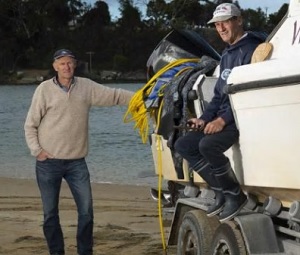
Coronavirus: Seafood industry falls victim to the virus
Abalone fisheries, reliant on China for up to 90 per cent of sales, have been paralysed by the sudden drop in demand with Tasmania’s entire fleet of up to 100 abalone dive boats “ground to a halt” for the past month. Lobster was one of the first sectors to suffer as the result of China’s quarantine lockdowns, forcing the sale of export catches on the local market at discounted prices. The crisis has since broadened, affecting scale fisheries such as banded morwong and wrasse, and all processors reliant on China exports or live fish trade to deserted Chinatowns in Sydney, Melbourne and Brisbane. >click to read< 09:16
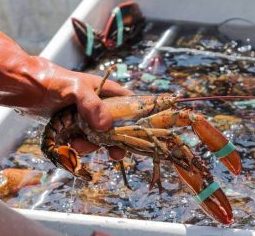
Coronavirus: Flights of live lobster to China plummeted in late January. When will they resume?
“It’ll probably be three or four months at least,” Keith Colwell told reporters after announcing $2.5 million in funding for a lobster quality research and innovation centre at Université Sainte-Anne in Church Point, N.S. “It’s a concern for us. It’s a serious concern, not just with lobster, but everything we export there.” Initially, Colwell called it a blip.,, “I think this is a big deal, particularly the way they’ve dealt with it, like they’ve closed stuff down,” said Chandra Gavin, a commercial fisherman from the Gulf of St. Lawrence. “We went through SARS and I don’t think any of that, none of this happened for that.” Video, >click to read< 07:47
Lobster Quality Research and Innovation Centre To Help Fishery – >click to read<
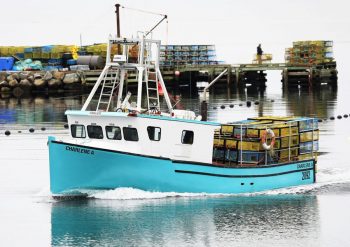
Coronavirus: Reverberations from COVID-19 reach Canada’s East Coast and its lobster fishery
Lobster fishermen, like Fralick, are facing a crunch. In the last month, the coronavirus epidemic in China has precipitated a drop in lobster prices. “It dropped from $10.50 all the way down to $6, and now it’s back up to $7,” says Fralick. “That takes all the profit out of it.” Quarantines and lack of restaurant traffic has slowed lobster demand from China. Customer orders have dried up. As a result, fewer cargo planes are making the trip. >click to read< 07:54
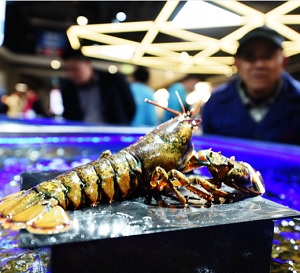
US-China Trade Deal: US lobster dealers anxious to resume business with China
Hugh Reynolds, a lobster dealer from Stonington, Maine, was excited to learn that the China-US phase-one economic and trade deal came into effect on Feb 14. According to the deal, China promises to purchase more agricultural products from the United States, and lobster is highlighted in the sector.,, Annie Tselikis, executive director of the Maine Lobster Dealers’ Association, said China accounted for 15 percent to 20 percent of the export value of US lobsters at the time. >click to read< 09:43
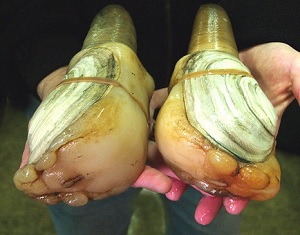
‘In shock’: Coronavirus sidelines Southeast Alaska dive fishermen
The coronavirus that emerged in late 2019 has infected more than 60,000 people, mostly in China. Though there haven’t been any confirmed cases in Alaska yet, some Alaskans, namely geoduck clam fishermen are feeling ripple effects from the epidemic.,, Though geoducks are native to the Western Hemisphere, Doherty said 95 percent of the catch gets sent across the Pacific. >click to read< 08:24
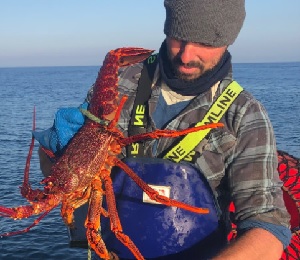
‘Lobsters overboard’ as China bans live seafood trade over coronavirus fears
Australia’s seafood industry has been thrown into crisis by the ban, with local fishermen considering a plan to return thousands of lobsters to the open waters. The export industry has ground to a halt in Victoria, Western Australia, South Australia and Tasmania as China usually imports about 90 to 95 per cent of locally-grown lobsters. >click to read< 16:47

The U.S.- China trade agreement will slow Canadian lobster sales to China
Even though a new U.S.-China trade agreement does not eliminate heavy Chinese tariffs, the deal will result in a loss of Canadian seafood sales to China,,, Canadian live lobster exports to China, mostly from Nova Scotia, soared after China slapped retaliatory tariffs of 35 per cent on U.S. lobsters. U.S. lobster exports tanked while Canadian sales jumped,,, The new trade deal does not lower those tariffs. But China has pledged to buy $32 billion worth of American agricultural products over the next two years, including lobster and other seafood products. >click to read< 17:38

U.S., China Reach Substantial ‘Phase One’ Trade Deal
The U.S. and China agreed on the outlines of a partial trade accord Friday that President Donald Trump said he and China’s Xi Jinping could sign as soon as next month. As part of the deal, China would significantly step up purchases of U.S. agricultural commodities, agree to certain intellectual-property measures and concessions related to financial services and currency, The agreement marks the largest breakthrough in the 18-month trade war that has hurt the economies of both nations. Importantly, Trump said the deal was the first phase of a broader agreement. >click to read< 16:34
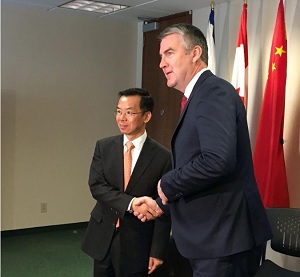
Nova Scotia premier should cancel China visits
Nova Scotia’s Opposition leader says the premier should stop visiting China – which he has done regularly throughout his mandate to promote local seafood and other industries – because of violent clashes between the state and pro-democracy protesters in Hong Kong and the continued detention of two Canadians whose freedom the federal government has been trying to secure. “He shouldn’t be visiting there, that’s for sure,” Progressive Conservative Leader Tim Houston,,, >click to read< 17:06
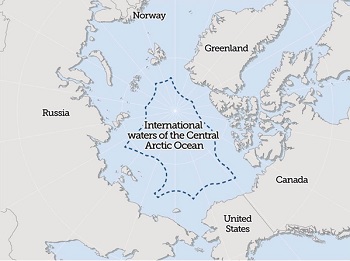
U.S. ratifies The Agreement to Prevent Unregulated High Seas Fisheries in the Central Arctic Ocean
The United States has become the fourth jurisdiction after Canada, the European Union and Russia to ratify a landmark international agreement that aims to prevent unregulated commercial fishery in the high seas of the Central Arctic Ocean, officials at the State Department announced Tuesday. The Agreement to Prevent Unregulated High Seas Fisheries in the Central Arctic Ocean, which was signed in Ilulissat, Greenland last October, includes the so-called Arctic Five – Canada, Norway, Russia, Denmark (Greenland and the Faroe Islands), the U.S. – as well as the major fishing nations – Iceland, Japan, South Korea, China and the EU. >click to read< 17:56






